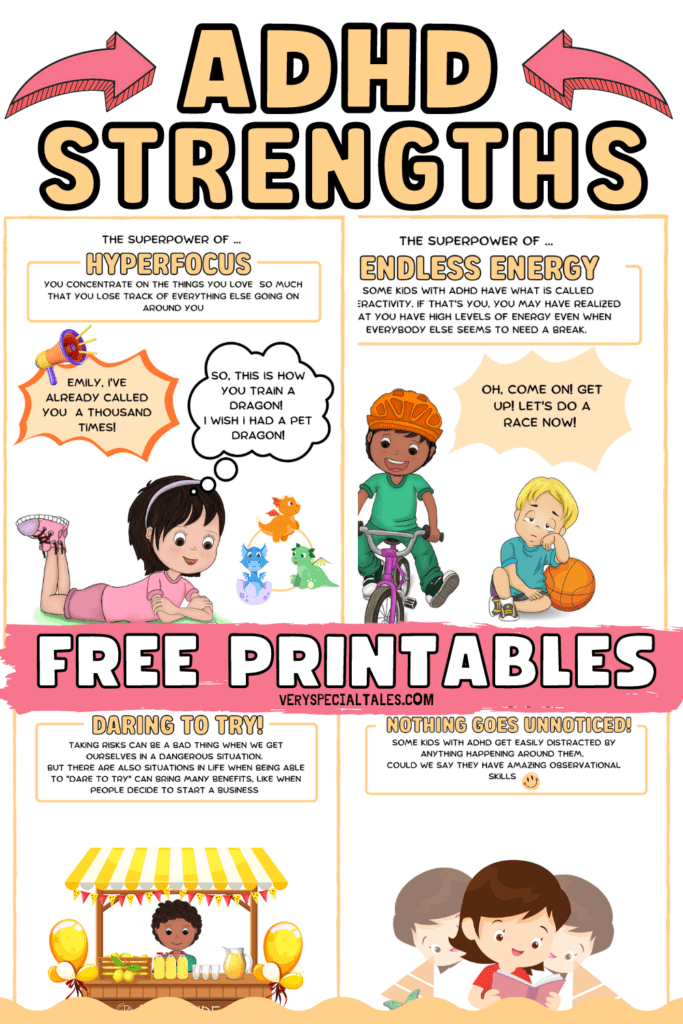Inside Our ADHD Minds: Challenges, Strengths, And Strategies

Table of Contents
Navigating the Challenges of ADHD
ADHD presents a unique set of hurdles impacting daily life. Understanding these challenges is the first step towards effective management.
Difficulty with Focus and Attention
Inattention is a hallmark of ADHD. Individuals may struggle with sustained attention, experiencing distractibility and difficulty filtering out irrelevant stimuli. This "attention deficit" manifests in various ways:
- Task completion: Projects remain unfinished, deadlines missed, and simple tasks feel overwhelming.
- Losing things: Keys, wallets, and important documents vanish regularly, adding to stress and frustration.
- Poor time management: Time blindness – the inability to accurately judge the passage of time – leads to chronic lateness and missed appointments.
- Academic and professional setbacks: Difficulty concentrating in lectures or meetings impacts learning and career progression. The inability to focus can lead to lower grades and missed promotions.
These struggles significantly impact academic and professional success, necessitating proactive strategies for improvement.
Hyperactivity and Impulsivity
Beyond inattention, many with ADHD experience hyperactivity and impulsivity. These symptoms often manifest as:
- Hyperactivity: Restlessness, fidgeting, excessive talking, and difficulty sitting still are common.
- Impulsive behavior: Acting without thinking, interrupting conversations, and making rash decisions are frequent occurrences.
These behaviors can lead to:
- Social difficulties: Difficulty forming and maintaining relationships due to impulsivity and interrupting others.
- Emotional consequences: Frustration, low self-esteem, and feelings of inadequacy stemming from perceived failures.
- Safety concerns: Impulsivity may lead to risky behaviors, potentially endangering themselves or others.
Addressing hyperactivity and impulsivity requires developing strategies for emotional regulation and improving social skills.
Emotional Dysregulation
ADHD often intertwines with emotional dysregulation, causing significant distress. This can manifest as:
- Mood swings: Rapid shifts in mood, from intense joy to deep sadness, within short periods.
- Increased irritability: A heightened sensitivity to frustration and a lower threshold for anger.
- Anxiety and depression: ADHD significantly increases the risk of developing anxiety disorders and depression.
Understanding the connection between ADHD and mental health is vital for comprehensive support. Treating emotional dysregulation requires a multifaceted approach, often incorporating therapy alongside other management strategies.
Unlocking the Strengths of ADHD Minds
While challenges are undeniable, ADHD minds also possess remarkable strengths that, when nurtured, can lead to exceptional achievements.
Creativity and Innovation
The ADHD brain is often a wellspring of creativity and innovative thinking. The ability to think outside the box, coupled with a unique perspective, can lead to breakthroughs in various fields.
- Problem-solving: Individuals with ADHD frequently demonstrate exceptional problem-solving skills, approaching challenges from unconventional angles.
- Out-of-the-box thinking: Their minds often generate novel ideas and solutions others might miss.
- Creative fields: Many successful artists, entrepreneurs, and inventors have ADHD, demonstrating the link between this neurotype and creative brilliance.
Hyperfocus and Intense Passion
While often associated with distractibility, ADHD also features "hyperfocus" – the ability to intensely concentrate on a task of interest for extended periods. This intense focus can be harnessed to achieve remarkable results.
- Dedication and engagement: When engaged in an activity they find captivating, individuals with ADHD often display remarkable dedication and commitment.
- Productivity bursts: Hyperfocus can lead to bursts of incredible productivity, surpassing the output of neurotypical individuals.
Understanding and leveraging hyperfocus is a crucial skill for managing ADHD effectively.
Adaptability and Resilience
The constant need to navigate the challenges of ADHD fosters remarkable adaptability and resilience. These individuals frequently develop:
- Resourcefulness: They become adept at finding creative solutions to overcome obstacles.
- Problem-solving skills: Continuously facing and resolving challenges sharpens their problem-solving abilities.
- Coping mechanisms: They develop effective coping strategies to manage daily life's demands.
Effective Strategies for Managing ADHD
Successfully managing ADHD involves a multi-pronged approach encompassing medication, therapy, and lifestyle adjustments.
Medication Management
Medication can significantly alleviate core ADHD symptoms, improving focus, reducing impulsivity, and enhancing emotional regulation.
- Types of medication: Stimulants and non-stimulants are commonly prescribed, each with its own set of benefits and potential side effects.
- Healthcare professional consultation: It is crucial to consult a healthcare professional to determine the appropriate medication and dosage. Self-medicating is dangerous and ineffective.
Therapy and Coaching
Therapy provides valuable tools for managing ADHD challenges:
- Cognitive Behavioral Therapy (CBT): Helps identify and modify negative thought patterns and behaviors.
- Behavioral therapy: Focuses on developing strategies to improve self-control and manage impulses.
- Coaching: Provides personalized support and guidance in developing effective coping mechanisms and self-management skills.
Lifestyle Modifications
Lifestyle adjustments play a critical role in managing ADHD:
- Healthy diet: Nourishing the brain with a balanced diet improves focus and energy levels.
- Regular exercise: Physical activity reduces hyperactivity, improves mood, and enhances cognitive function.
- Adequate sleep: Prioritizing sleep hygiene improves cognitive function, mood regulation, and overall well-being.
- Stress management techniques: Implementing stress-reduction techniques such as mindfulness or yoga can significantly improve symptom management.
- Improved organization: Establishing daily routines, utilizing organizational tools (planners, apps), and breaking down tasks into smaller, manageable steps can significantly improve daily functionality.
Conclusion: Embracing the ADHD Journey
Understanding the unique characteristics of ADHD minds – the challenges, the strengths, and the strategies for effective management – is key to living a fulfilling life. While ADHD presents obstacles, it also bestows remarkable gifts. By embracing self-acceptance, seeking appropriate support, and utilizing available resources, individuals with ADHD can thrive. Seek professional help from a psychiatrist or therapist, explore support groups, and continue learning about managing your ADHD minds effectively. Remember, you are not alone, and with the right strategies and support, you can navigate your ADHD journey successfully.

Featured Posts
-
 Earth Series 1 Episode 1 Inferno Key Events And Analysis
May 13, 2025
Earth Series 1 Episode 1 Inferno Key Events And Analysis
May 13, 2025 -
 Angela Swartz Key Contributions And Notable Works
May 13, 2025
Angela Swartz Key Contributions And Notable Works
May 13, 2025 -
 Edan Alexander Remains Missing Latest Updates On The Gaza Kidnapping
May 13, 2025
Edan Alexander Remains Missing Latest Updates On The Gaza Kidnapping
May 13, 2025 -
 Get A Head Start Elsbeth Season 2 Episodes 18 And 19 Previews And Finale Sneak Peek
May 13, 2025
Get A Head Start Elsbeth Season 2 Episodes 18 And 19 Previews And Finale Sneak Peek
May 13, 2025 -
 Untreated Autism And Adhd In Britain Could This Affect You
May 13, 2025
Untreated Autism And Adhd In Britain Could This Affect You
May 13, 2025
